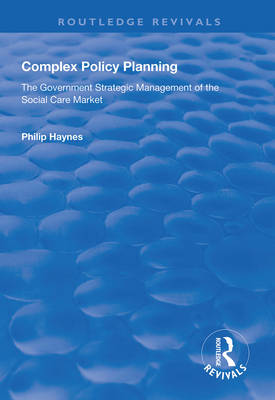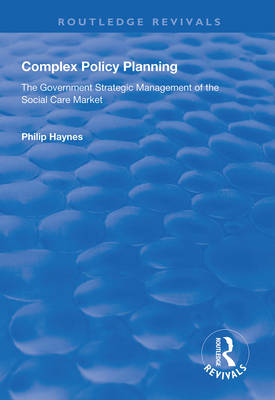
- Afhalen na 1 uur in een winkel met voorraad
- Gratis thuislevering in België vanaf € 30
- Ruim aanbod met 7 miljoen producten
- Afhalen na 1 uur in een winkel met voorraad
- Gratis thuislevering in België vanaf € 30
- Ruim aanbod met 7 miljoen producten
Zoeken
€ 155,45
+ 310 punten
Uitvoering
Omschrijving
First published in 1999, this book examines recent developments in the application of chaos and complexity theory to the applied social sciences and the implications for the government planning of social care services. The study argues that there are fundamental limitations to traditional government political and managerial planning structures. Chaos and complexity theory shows that the effects of time and space are critical aspects for planners to consider. Small changes in isolated social or individual factors can have larger scale effects on the future validity of a policy programme. In particular, rigid linear statistical calculations like the Government Standard Spending Assessment can undermine the ability of local authorities to make realistic plans. It is proposed that government political strategies and managerial methods of analysis need to better understand the complexity of information available to them. New political and institutional typologies are required if planning activity is to evolve to be of optimal social value.
Specificaties
Betrokkenen
- Auteur(s):
- Uitgeverij:
Inhoud
- Aantal bladzijden:
- 276
- Taal:
- Engels
- Reeks:
Eigenschappen
- Productcode (EAN):
- 9781138617568
- Verschijningsdatum:
- 18/09/2018
- Uitvoering:
- Hardcover
- Formaat:
- Genaaid
- Afmetingen:
- 152 mm x 229 mm
- Gewicht:
- 671 g

Alleen bij Standaard Boekhandel
+ 310 punten op je klantenkaart van Standaard Boekhandel
Beoordelingen
We publiceren alleen reviews die voldoen aan de voorwaarden voor reviews. Bekijk onze voorwaarden voor reviews.











